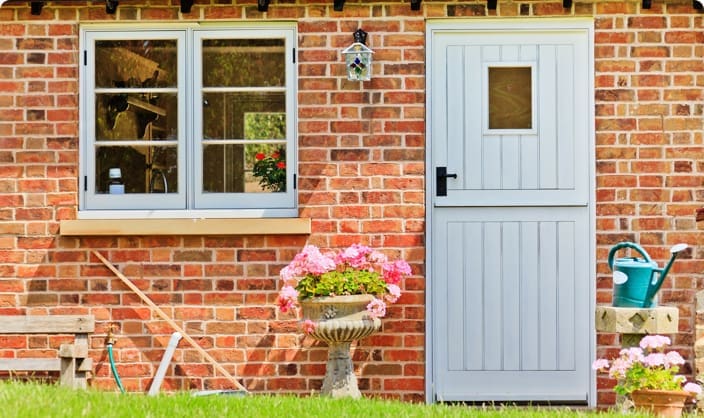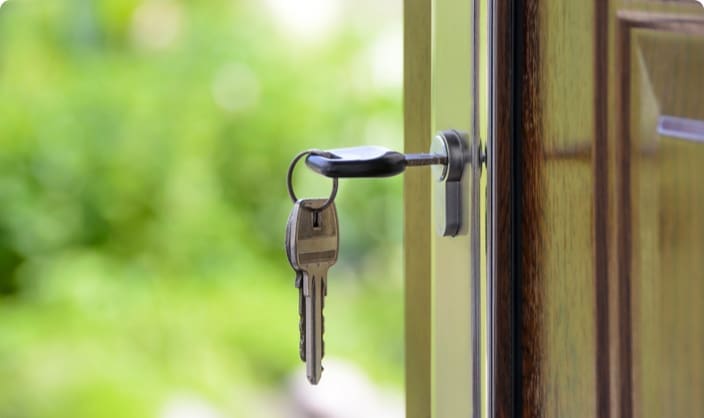Mortgages for Sole Traders
If you’re registered as a sole trader, then it can be difficult to know where to turn when it comes to getting a mortgage. The inflexible ‘one size fits all’ approach taken by high street banks and building societies doesn’t allow for the twists and turns that a sole trader’s income can take, and you can find yourself facing unreasonable terms, or being frozen out altogether.
Get in touch for a free initial, no-obligation discussion about your mortgage situation.
Do you qualify?
No credit checks & only takes minutes!
What we cover in this guide
- Try our Self-Employed mortgage calculator
- Read our Self-Employed mortgage guide
- How long do I need to have been trading before getting a mortgage?
- Mortgages for Sole Traders
- Do I need to put down a bigger deposit if I am Self-Employed?
- Sole Trader vs Limited Company Mortgages
- How do I choose the best Self-Employed Mortgage?
- Mortgage advice for Sole Traders
- Sole Trader Mortgage Rates
- Best Mortgage Lenders for Sole Traders
- FAQs
However, this certainly does not mean you can’t get a mortgage as a self-employed sole trader. There are many specialist lenders in the market who will be able to offer a mortgage to suit your requirements, and in recent years we have seen some mainstream lenders start to become more flexible in their approach as they recognise the needs of growing portion of the workforce who are registered as self-employed.
How long do I need to have been trading before getting a mortgage?
Generally, mortgage lenders will want you to have been trading in your current business for at least twelve months, or perhaps one whole April–April tax year, although many will prefer to see two or three years of business accounts in order to get a more complete picture of your business and potential income in the future.
If you are under a contract but have been trading for less than a year, then lenders may be willing to use your current contract as the basis for a mortgage decision. If there is sufficient time on the contract yet to run, the lender will use your day rate to extrapolate your annual income to use when assessing a mortgage’s affordability and the amount you can borrow.

Fill out our quick and easy Self-employed calculator below. We only require a few details to see how much you may be able to borrow.
NO CREDIT CHECKS!
Mortgages for Sole Traders
For many years, self-employed people applying for a mortgage were able to use ‘self-certification’ when applying for mortgages, i.e. there was no obligation to provide documentary evidence with a declaration of their income. This proved very popular, and while the practice was convenient for both the applicant and the lender, it did provide an opportunity for borrowers to paint their finances in a better light than they actually were and therefore obtain a mortgage that they were in reality not able to support.
Following the 2008 financial crisis and ensuing credit crunch, ‘self-cert’ mortgages fell off the market as lenders sought to curtail any risks, and were in fact outlawed in 2011. New regulations set down by the Financial Conduct Authority (FCA) stipulate that lenders now have a responsibility to verify proof of self-employed mortgage applicants’ incomes, just as they do for any traditionally salaried borrowers.
Read MoreA PAYE employee is easily able to provide payslips and an employer’s reference to prove their income when applying for a mortgage, but sole traders are unable to do the same. Lenders typically need to see your business accounts for at least the last twelve months and/or your SA302 year-end tax calculation sent out by HM Revenue & Customs (usually with the corresponding tax year overview). You can find more information about the SA302 and how to get it below.
Requirements will vary from lender to lender, but usually they will ask for one, two or three years’ worth of accounts (and probably SA302 forms) according to their own criteria, and will need these to be certified by a chartered accountant. A lender asking for two or three years’ accounts will either use the most recent year’s figure, the lowest figure in the range, or most commonly they will calculate an average annual income to use as a basis for their mortgage affordability calculation.
As a sole trader, the affordability calculations and the amount you will be able to borrow will be based on the net profit from your business, with both again varying from lender to lender. The mortgage amount offer will typically be a multiple of your annual income figure, usually between 3.5 to 5 times your income, with the lender applying their own individual affordability assessment to produce the actual total amount they will be prepared to lend to you.
Do I need to put down a bigger deposit if I am Self-Employed?
You will not be required to provide a bigger deposit if you are registered as self-employed–if your verified income is within the affordability criteria the lender sets out for all applicants, then you should be able to get the same loan-to-value (LTV) ratio as anyone else. Most lenders usually require a deposit of 5–10%, therefore your LTV will be 90–95% accordingly, but some mortgage products may need you to supply a larger deposit to qualify for certain deals.
If you for whatever reason don’t fall within the mortgage lender’s criteria, then in some cases they may accept your application if you are able to put down a bigger deposit. This shows commitment from yourself and results in a lower LTV ratio, lessening the risk on their part.
Sole Trader vs. Limited Company Mortgages
Arranging a mortgage can become a little more complicated if you run your business as a limited company director rather than a sole trader. Lenders tend to regard the money you take from the company as your base income (in the case of sole traders, this is often all the profits of the business), and their approach to money you take as dividends or cash left as retained profits within the company can vary greatly from one lender to the next. So the total amount you will be permitted to borrow will vary according to how the lender calculates your income for the purposes of an affordability assessment.
Quite a few lenders offer mortgage products specifically aimed at limited company directors. These can be in the form of personal mortgages (as would be offered to a sole trader or partner in a business), or business mortgages, where the loan is offered to the company rather than the director–one instance being landlords obtaining a buy-to-let mortgage on a new property for their portfolio under their business structure.
Fees and interest rates are usually higher than average on these kinds of commercial mortgages, and you may need to agree to other additional conditions–for instance, a limited company director may need to sign a personal guarantee to cover the mortgage debt, making them more responsible for the loan than would normally be the case for a limited liability company.
How do I choose the best Self-Employed Mortgage?
As you know, attitudes and assessment processes adopted by lenders towards self-employed sole traders and their income can vary a great deal from one lender to another. Therefore, one of the key factors to consider when looking for a mortgage is finding the lender that is best suited to your individual circumstances–who will consider most positively the length of time you have been trading, how many years worth of accounts and SA302s you have, how they work out a mortgage’s affordability and the maximum they will lend, and so on.
It’s important to realise how many more options for mortgage lending there are on the market outside of the high street banks and building societies. In recent years, some mainstream lenders have become more flexible in their lending policies, but there are a number of smaller, specialist lenders who have been catering to the needs of sole traders for some time.
It’s vital to think beyond just the headline interest rate when considering and comparing mortgage deals. You should look into other factors, like:
- Is there an arrangement fee to pay with this mortgage, and how does this compare with other mortgage products from the same lender, or other lenders
- How do you feel about interest rates? Do you prefer a stable, fixed interest rate, or would you go with a variable tracker or capped rate product, and the accompanying risk of rate increases?
- What is the duration of the deal, and will the lender charge you for early repayment if you decide to move your mortgage to another lender, either within or after the agreed term?
Mortgage advice for Sole Traders
Talking to a specialist unlimited mortgage broker can bring you many other advantages beyond simply saving you time and having someone else make arrangements. Our years of experience at The Mortgage Centres in arranging mortgages for sole traders (as well as business partners and company directors) means we know the mortgage market like the back of our hand–how all the individual mortgage lenders operate, their terms and processes, as well as the kinds of mortgage products and deals they are able to offer. We can find not only the right deal for you, but the right lender to suit your circumstances.
On top of this, once we have found the right mortgage for your needs, we can handle your application from start to finish, liaising with your lender, your solicitor and any other parties involved, meaning a lot less stress for you and the confidence that everything is being done as it should be. Give us a call today on 0330 094 5876, or use our online form to tell us about your mortgage needs and learn how we can help.
Sole Trader mortgage rates
The mortgage rates available to sole traders are no different from rates offered to someone applying for a mortgage in regular employment. Lenders will not discriminate based on your employment status–their decisions are made entirely on your verified income. The fact that a mortgage should be affordable for you is a lender’s most important consideration, so they’ll check your business accounts to make a proper assessment and offer a mortgage amount based on your net profits.
Best mortgage lenders for Sole Traders
Much can vary according to your own circumstances, but the fact is that if a lender is offering mortgages, then they will have products for sole traders. Our team at The Mortgage Centres handle mortgage applications for all kinds of mortgage products, from those available at mainstream lenders and on the high street, through to specialist mortgages for niche markets from lenders who are accustomed to dealing with more complex applications. Once we understand your individual situation and your needs, we will be able to show you the best lenders for the kinds of mortgage you’re looking for.
Frequently asked questions...
- What is an SA302, and how do I get it?
- What other factors will the lender take into account?
- Can I get a sole trader mortgage with bad credit?
As a sole trader, if you (or your accountant) submit an annual Self-Assessment year-end tax return to HMRC, then this will produce an end of year tax calculation, which they will send to you. This is the SA302 form–it shows your declared income from all sources and your income tax and National Insurance contributions due for that year. You can get up to four years of SA302 forms from the HMRC in one of three ways:
- If you submit your own tax return using the HMRC Self Assessment online portal, then sign into your account and print off the relevant SA302s from there.
- If you or your accountant completes your tax return using commercial accounting software, then you or they can print them off via the software.
- If you submit your tax return by post, then you need to contact HMRC directly to request any SA302 forms.
If your mortgage lender will only accept original SA302 forms (as opposed to home-printed copies), or if you submit your tax return by post, or you are not able to print out your forms (don’t have a printer), then you can either call the HMRC Self Assessment helpline on 0300 200 3310–quoting your National Insurance number and Unique Taxpayer Reference (UTR)–or write to: Self Assessment, HM Revenue and Customs, BX9 1AS. Bear in mind that it can take up to two weeks for SA302s to arrive after you have requested them.
The main differences between an application by someone on standard employment and a self-employed individual will always revolve around proof of income, and the methods used to assess it. Aside from this, most other factors are the same for all kinds of applicants–they might ask for:
- Bank statements from the last three months, or more
- Proof of identity for all parties applying (e.g. passport or driving licence)
- Proof of current address (usually a recent utility bill, or your current bank statement)
Lenders will also perform a credit check, and use their own internal credit scoring system to determine their level of risk in lending to you. This will take into account all the information you would have supplied on the application–age, employment history, any existing financial relationship with the lender–and an external credit history check through one or more of the three main credit check agencies in the UK: Equifax, Experian and TransUnion (formerly Callcredit).
It’s always a good idea to check your own credit history and obtain copies of your credit records yourself directly from each of these agencies, to make sure all the details they hold about you are correct:
Credit problems in the past might limit your mortgage options, but do not necessarily disqualify you from getting a mortgage by any means. At The Mortgage Centres, we also specialise in helping people with bad credit histories obtain a mortgage–call us on 0330 094 5876 to find out how we can help.
Having a bad credit history, or just one or two blemishes on your record, can make things more challenging when applying for a mortgage as a sole trader, but it is by no means impossible. Much might depend on the nature of the adverse credit event and the amount of time since it occurred, but it’s also a matter of knowing where to look.
High street banks and building societies are unlikely to be willing to offer a mortgage to a self-employed sole trader with a bad credit score, but there are many specialist lenders who are more understanding of individual circumstances and more flexible when it comes to assessing an applicant’s creditworthiness. This said, a mortgage deal for a sole trader with bad credit is likely to come at a higher rate, and may also require a larger deposit to secure.
Our team at The Mortgage Centres has a great deal of experience in handling mortgage applications for people with a poor credit record, and are in a favourable position to source a sole trader mortgage with bad credit. We have access to a number of specialist niche-market lenders who offer deals that you won’t see advertised online or on the high street.
Our advisers will look at your unique circumstances, assess your credit file and even make informal enquiries with lenders before formally placing your application with the provider who we think will be best suited to supply you with a mortgage for a sole trader with bad credit.
"*" indicates required fields




